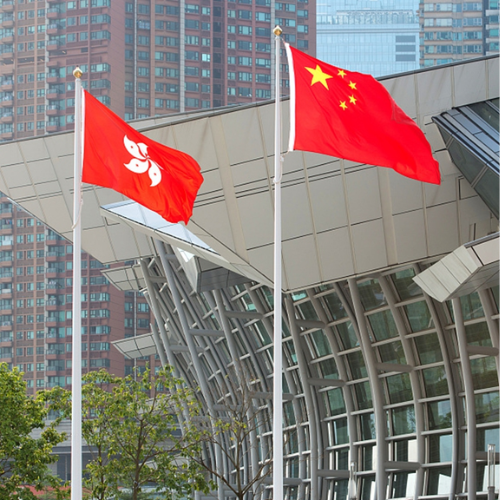The U.S. State Department has strongly criticized Hong Kong for using intimidation tactics against pro-democracy campaigners. According to the U.S., Hong Kong has placed bounties on six individuals known for their advocacy for democracy, offering rewards for information that could lead to their arrest. In addition to these bounties, the Hong Kong government has revoked the passports of seven other pro-democracy campaigners, some of whom are living in the United States. The State Department believes these actions are part of a broader strategy to silence voices that oppose the government’s policies and to send a chilling message to others who might support democracy in the region.
These moves are seen as part of a growing effort by the Hong Kong government, which is backed by Beijing, to crack down on political dissent. Critics argue that the government is trying to control people’s right to speak freely and challenge the ruling authorities. The U.S. has condemned these actions, calling them an attempt to intimidate individuals and stifle any form of opposition in Hong Kong.
China’s Retaliation Against Canadian Institutions
The U.S. has also condemned China’s actions against Canadian entities and individuals who have been active in raising awareness about human rights violations against Uyghur Muslims and Tibetans. These groups have been involved in bringing attention to issues like forced labor, detention camps, and the suppression of cultural and religious freedoms in these regions. In response to Canada’s sanctions against Chinese officials involved in these human rights abuses, China has taken retaliatory measures, imposing sanctions on certain Canadian institutions and individuals.
China Slams US Provocation: Dangerous Escalation Sparks Space Militarization Fears
China argues that these actions are necessary to protect its national security and to defend its sovereignty. The Chinese government believes that the international community should not interfere in its internal affairs. However, critics in Canada, the U.S., and other countries view these actions as an effort to silence criticism and deter future attempts to hold China accountable for its human rights violations.
The Role of National Security Laws in Hong Kong
The U.S. also criticized the broader impact of China’s national security laws in Hong Kong. These laws, which were imposed by Beijing in 2020, have been used to arrest and imprison pro-democracy activists, journalists, and others who speak out against the government. Critics say the laws are part of a larger plan to erase the freedoms that Hong Kong once enjoyed under the “one country, two systems” framework. This framework was supposed to allow Hong Kong to maintain a separate legal and economic system from China after its return to Chinese sovereignty in 1997.
However, the national security laws have been used to arrest a growing number of individuals who advocate for greater freedom and autonomy. Some pro-democracy leaders have been charged with “subversion” or “collusion with foreign forces,” while others have been forced into exile. The U.S. has pointed to these actions as further evidence that China is undermining the freedoms promised to the people of Hong Kong. The situation has raised alarm about the future of political freedoms in the region.
Sweden Slams China’s Defiant Block on Baltic Cable Sabotage Probe
The U.S. Response and Criticism of China’s Actions
The U.S. State Department’s statements reflect deep concern about the ongoing crackdown on pro-democracy activists in Hong Kong and the harsh measures China is using against those who speak out about human rights abuses. In its criticism, the U.S. emphasized that these actions are contrary to international standards for freedom of expression and human rights.
China, on the other hand, has defended its actions, arguing that they are necessary for national security and the protection of the country’s sovereignty. The Chinese government claims that the U.S. is hypocritical, pointing to the many human rights issues in other countries, including the U.S. itself. China also believes that the U.S. is interfering in its domestic affairs and trying to weaken its position on the global stage.
Despite the back-and-forth between the U.S. and China, the situation in Hong Kong and China’s relations with Canada remain tense. The human rights concerns raised by the U.S. and others are not just about the actions being taken against specific individuals, but about the broader implications for freedom and democracy in the region.
While the U.S. and China continue to spar over these issues, the impact on those affected by these actions is undeniable. Pro-democracy campaigners, human rights organizations, and even average citizens are feeling the effects of the growing crackdown in Hong Kong and the international tensions between the two powerful nations.


